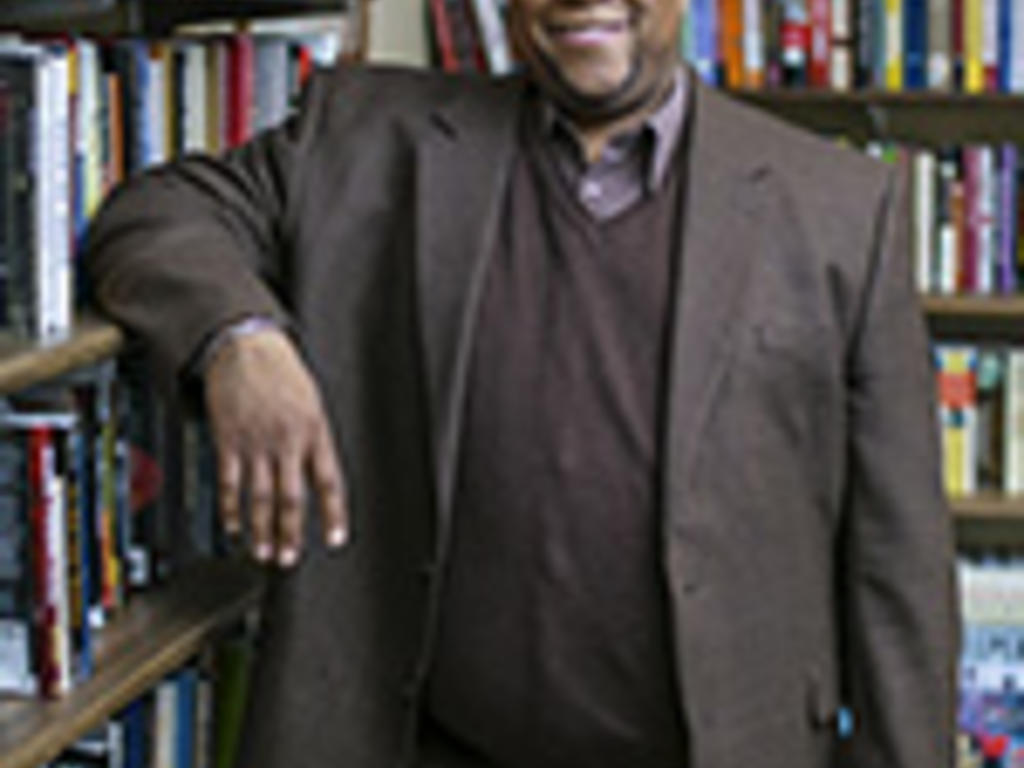By Lesley Young
Matthew Niegos ’14 didn’t have to take Professor Charles McKinney’s Civil Rights in Memphis class. McKinney’s reputation for offering gratifying classroom experiences, however, put him on Niegos’ bucket list of professors to take before graduating Rhodes in spring.
“A couple of history professors are known to leave students with a really good feeling after the class. Dr. McKinney has a good reputation. I wanted to study under him at least one semester,” Niegos says.
Not only did Niegos leave McKinney’s Civil Rights in Memphis class with a really good feeling and a better understanding of the civil rights movement, but also he found a new passion—blogging. The seminar class provided all the usual elements of academia—critical reading, discussions, and grades. But added to the mix, it required students to blog three times before and three times after midterm exams, as well as write eight response commentaries on other students’ blog posts. All blogging activity was graded.
“The class is a great opportunity to introduce students to a very rich, multifaceted history that involves the struggle for equality and self-determination that goes back to the latter part of the nineteenth century in what scholars are now calling the Long Civil Rights Movement. They’re in the middle of this maelstrom of some very old dynamics—class, race, region,” says McKinney, an associate professor of history. “Blogging is a way to open up the class and have extended conversations about the material we go over. It encourages students to think about the material in their daily usage.”
Students discussed issues they come across in their lives, relevant articles or essays they read, and interpretations of class material. Niegos blogged about the “King of Soul” Sam Cooke’s involvement in the civil rights movement as well as the misrepresentation of African American History Month in some communities. Other topics that showed up included hip-hop lyrics, the Shelby County Schools system, the mayor of Memphis, and even sports—a subject that caught Niegos’ eye. “One of the more interesting submissions was about sports and the civil rights movement, specifically baseball,” Niegos says.
“The class required us to engage in meaningful conversation. There are a lot of issues still lingering from the era of civil rights, and how can you be able to work through problems unless you’re able to talk about them?” says Niegos. “Blogging was really interesting. It was set up to promote dialogue between the students, to engage us to speak and talk about what we read and our experiences outside of class. It was beneficial in learning how to formally converse about a subject we all take very seriously.”
“I encourage them to connect current issues with the issues of the past,” McKinney explains. “If they bump into something now that reminds them of the circumstances and scenarios we talked about in class, it adds to the richness of the discussion. As Faulkner said, ‘The past is not even past.’”
McKinney sees his students come alive because of their blogging participation, and found this to be particularly true for his spring semester class this year when students often exceeded his requirements before their deadlines.
“The entire class was really engaged. It was probably one of my best experiences I’ve had teaching this class. They just soaked it up,” he says. “I saw a high volume of interaction. They were posting articles they wanted others to read and asking questions and asking the opinions of their peers. I saw them wanting to have a conversation and wanting to hear from specific students because they remembered another post they saw previously.”
In addition to infusing his charges with a tangible understanding of their community’s complex past, McKinney seems to inspire in other ways. “I plan on attending law school, and what I really want is to promote better communities,” Niegos says. “Maybe I can utilize online resources to communicate with people better.”
